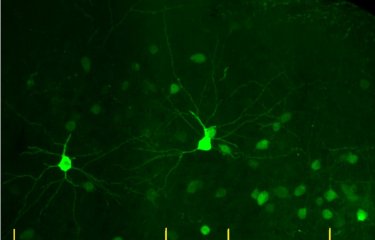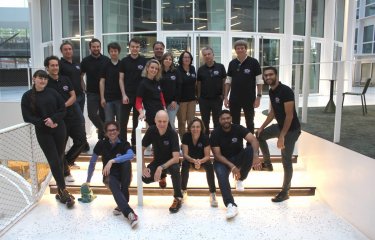A recent study evaluates the benefits of 3D visualization for surgeons analyzing MRI breast images. Based on the innovative DIVA technology, developed jointly by the Institut Pasteur and the Institut Curie, a new software application gives surgeons immersive 3D visualizations of MRI images, enabling them to analyze situations more quickly and determine the best approach to take.
Virtual reality has multiple applications in the field of health, for example offering new approaches to medical image visualization. A software application developed in 2020 based on DIVA technology (which received an award at the Start-Ulm competition in 2018) uses MRI images to create 3D environments that are interactive and configurable. With a virtual reality headset and controller, surgeons are able to navigate through a representation of tissues and organs and plan their surgery. The software provides practitioners with a more intuitive view of the medical data than was previously possible with conventional visualization techniques that offer views of successive layers.
The software is already being used in real conditions, especially for breast cancer operations. It is now being developed by AVATAR MEDICAL™ (find out more), an innovative spin-off from the Institut Pasteur and the Institut Curie.
A study published in JCO Clinical Cancer Informatics in 2021 evaluates the benefits of 3D visualization. The aim of the study was to estimate the speed and precision of surgeons in analyzing breast MRIs of patients who had already had surgery. It concluded that the use of virtual reality in preoperative planning facilitates surgeons' work.
The surgeons were able to analyze the images on average four times faster than with conventional visualization, and they said that 3D visualization helped them identify the best surgical strategy to adopt.
The solution therefore achieves its aims of simplifying image processing for complex surgery, saving time for physicians and improving the quality of surgical procedures. It also meets a need expressed by surgeons for better visualization tools, according to a survey conducted with 59 French surgeons.
Breast cancer claimed the lives of 685,000 women in 2020 (WHO), and surgery is the first-line treatment for the condition. The challenge with breast cancer is to improve our ability to identify tumor cells so as to reduce the rate of recurrence. Virtual reality may represent a valuable tool in this respect, helping improve treatment for patients and boosting the chances of remission.
This study is part of the Cancer Initiative of the Institut Pasteur's strategic plan for 2019-2023.
Source :
Breast MRI Analysis for Surgeons Using Virtual Reality: A Comparative Study, JCO Clinical Cancer Informatics, date
Mohamed El Beheiry1, Thomas Gaillard2, Noémie Girard2, Lauren Darrigues2, Marie Osdoit2, Jean-Guillaume Feron2, Anne Sabaila2, Enora Laas2, Virginie Fourchotte2, Fatima Laki2, Fabrice Lecuru2, Benoit Couturaud2, Jean-Philippe Binder2, Maxime Dahan4, Jean-Baptiste Masson1, Fabien Reyal2, 3, and Caroline Malhaire5, 6
1 - Decision and Bayesian Computation, USR 3756 (C3BI/DBC) & Neuroscience Department CNRS UMR 3571, Institut Pasteur & CNRS, Paris, France
2 - Surgery Department, Institut Curie, PSL Research University, 75005 Paris, France
3 - U932, Immunity and Cancer, INSERM, Institut Curie, 75005 Paris, France
4 - Physico-Chimie Curie, Institut Curie, Paris Sciences Lettres, CNRS UMR 168, Université Pierre et Marie Curie–Paris 6, Paris, France
5 - Institut Curie, Department of Medical Imaging, PSL Research University, Paris, France
6 - Institut Curie, INSERM, LITO Laboratory, 91401 Orsay, France
For more information, go to the Avatar Medical website





